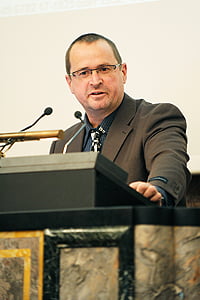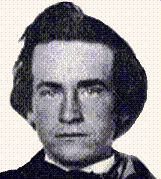Why Things Will End Badly for Investors in US Stocks
by Bill Bonner
Yesterday, we reported on the latest money woes in Argentina. Today, we turn back to the US.
The Dow caught a bid yesterday, with a 90-point rise, bringing it to rest at 15,928.
That’s 15,017 points higher than the low it hit in 1981, just after Ronald Reagan was elected. In 1982, US stocks began a sustained and spectacular rise. Over a 33-year period, the market value of America’s most important corporations rose nearly sixteen-fold.
But wait, did we say ‘value’? We meant price.
Prices are notations, bearing relative information. If you buy a stock at $100 that rises in price another $50…and your brother-in-law’s stock went up to $200, your brother-in-law just got lucky. You wisely bought the more conservative stock and protected your family from the risk. Good on you.
But if consumer prices double…or triple…over the same period, you and your brother-in-law are both chumps.
Of course, it is notoriously difficult to say exactly how much consumer price inflation there is in an economy. Any answer comes with caveats and health warnings.
Argentina’s official inflation number, for example, needs more than the usual boilerplate. Officially clocked at 10% for the last few years, the real annual rate, according to Johns Hopkins professor Steve Hanke, is 63%.
If so, wages, dividends and asset prices all have to be adjusted downward. Based on Hanke’s number, almost all the Argentines are chumps, as almost no asset or income stream can keep pace with the falling value of the peso.
In the US we don’t have to worry about such high inflation rates. We have the Federal Reserve, charged with the mission – among others – of making sure we have a ‘stable currency’.
Back when that job was confided to it, in 1913, there seemed little doubt that it would be up to the task. Consumer prices in the US had been more or less stable since the founding of the Republic.
There had been periods of rising prices – such as the War Between the States – and periods of falling prices – such as the last quarter of the 19th century. But consumer price inflation never developed a real purchase in the US until the Fed was set up to prevent it.
Since then, it has been off to the races.
It would be easy to explain this phenomenon simply as ‘the Fed printed too much money’. But that is not the way it works (at least not these days).
The Fed can add to the monetary base by injecting reserves into the banking system. But this ‘state money’ is only about 15% of what is measured as the wider ‘money supply’…and it doesn’t leave the banking system.
The rest is ‘bank money’. It’s money that is created privately by banks.
These days, banks create this kind of money ex nihilo when they make a loan. If you borrow $100,000 to build a house, for example, a bank simply creates a deposit of $100,000 out of thin air. (The reserve ratios of the financial system these days are so small that they play practically no role at all in constraining credit creation.)
If a bank made 10 loans like this, it would add $1 million to the money supply, which consumers would then spend. Assuming prices are set by supply and demand, this $1 million in new money supply would weigh in on the demand side. Prices would rise, signalling to producers that it is time to increase supply.
Multiply this phenomenon millions of times. Add Alan Greenspan and Ben Bernanke’s ‘party time’ invitations. Mix in the rise of cheap Chinese manufacturing to keep consumer prices and wages down. And don’t forget the bank bailouts…implicit central bank support for stocks…near-zero interest rates…and $4 trillion of QE from the Bernanke Fed.
There you have the potent highball that made so many investors giddy…and brought so much new wealth to the already wealthy.
Fifteen thousand points on the Dow were added in a single generation. More than had been accumulated during the seven generations before.
What made Americans suddenly so smart and so successful?
Or were they?
Stay tuned…
Regards,
Bill Bonner
for The Daily Reckoning Australia






